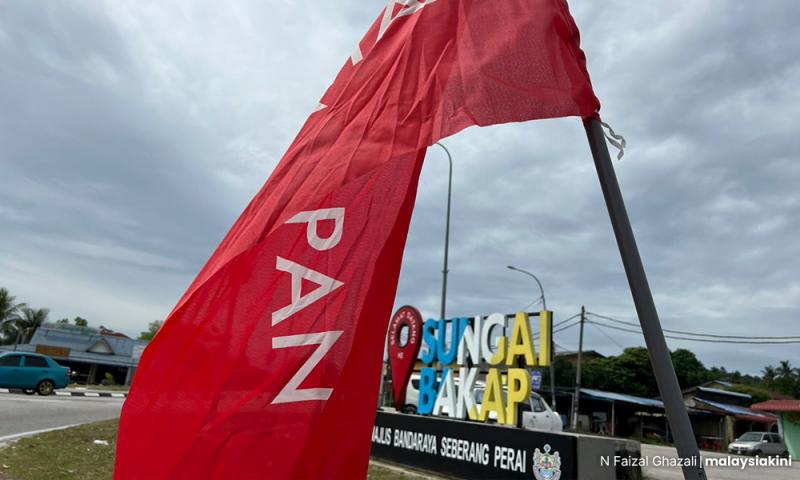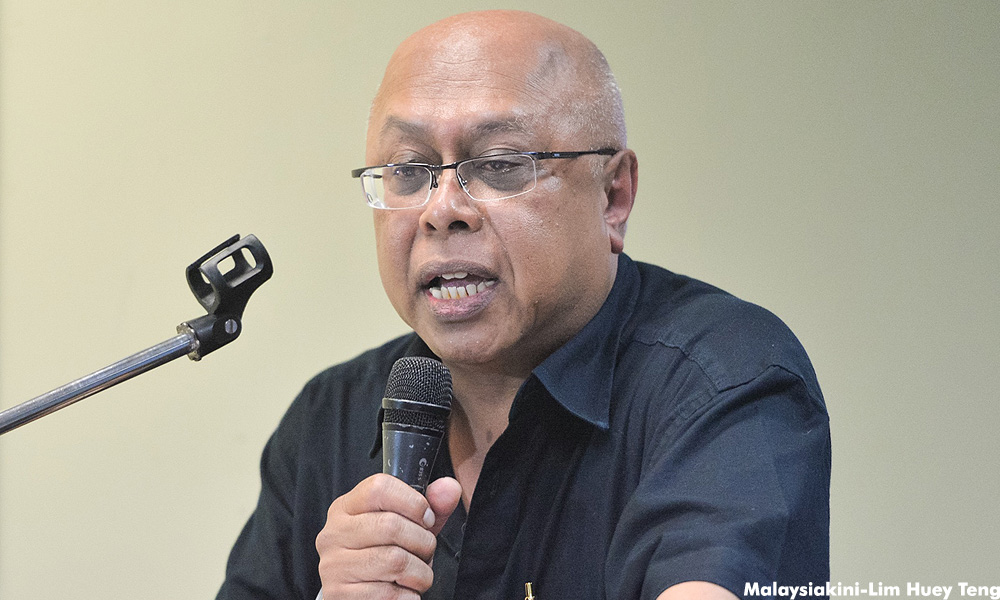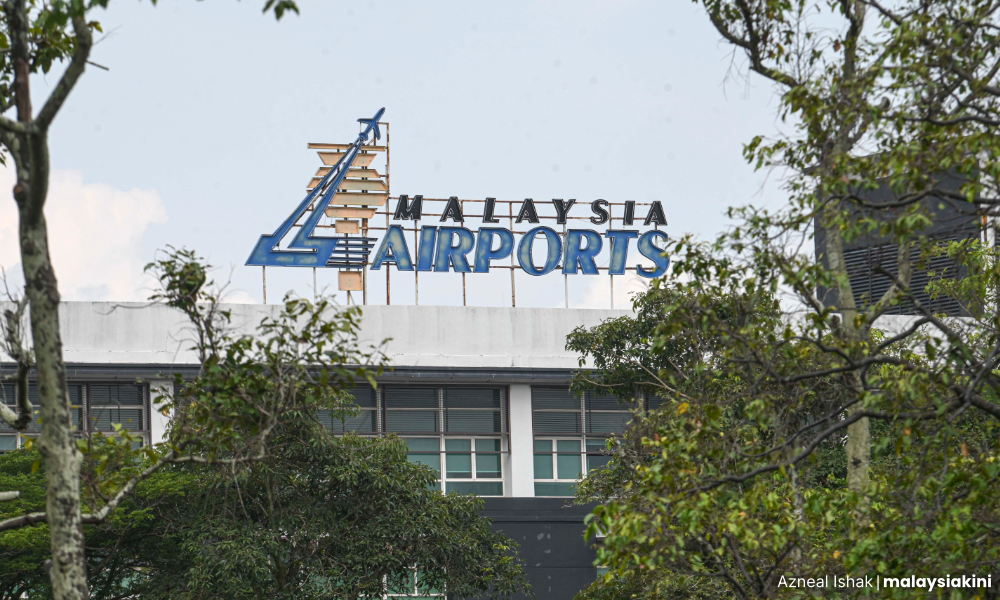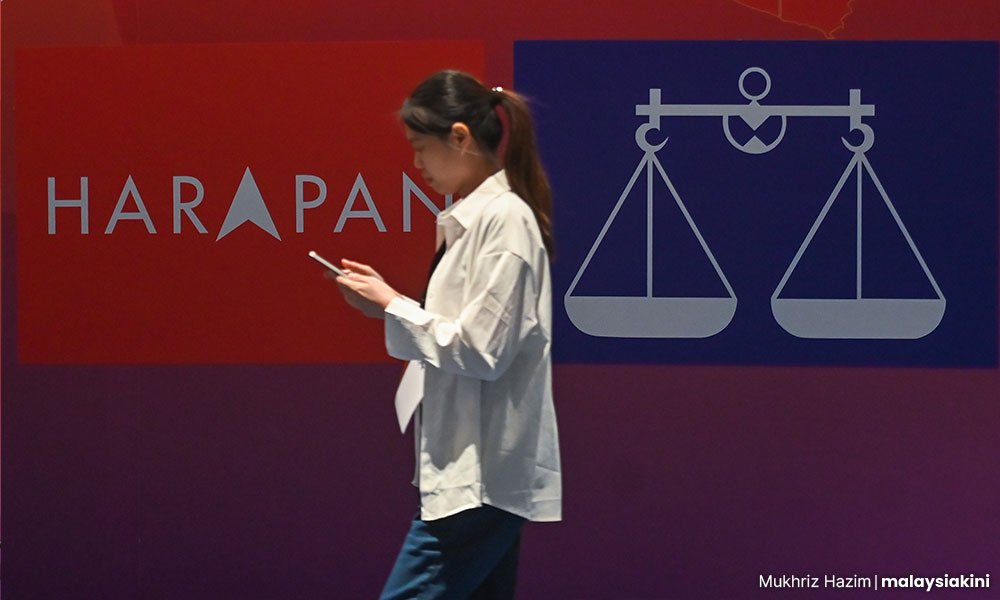
Will Sg Bakap loss lead to same ending as Tg Piai defeat?
Isabelle Leong & Haspaizi Zain
Published: Jul 8, 2024 1:42 PM
The Madani pact’s defeat in Sungai Bakap on Saturday echoed patterns from five years ago when Pakatan Harapan lost in the Tanjung Piai by-election.
In both elections, the ruling coalition failed to make meaningful gains with Malay voters, while the non-Malays chose to punish the government, culminating in an electoral drubbing that saw the opposition increase their vote share.
On the surface, failing to capture Sungai Bakap from Perikatan Nasional may not be as severe as the landslide defeat in Tanjung Piai.
However, the similarities raised questions about whether this was the beginning of a journey down the same path that the previous Harapan administration walked in the aftermath of Tanjung Piai, which ended with the government collapsing.
Pundits Malaysiakini spoke to cautioned that it is too simplistic to draw such comparisons between the two by-elections given the different dynamics at play.
However, the general consensus is that things are not looking good for the Madani pact.
Dissipating Chinese support
Penang Harapan chairperson Chow Kon Yeow pointed the coalition’s loss to the decline in support among non-Malays leading to lower voter turnout compared to the state assembly election last year.
Chow said Chinese voter turnout was at an estimated 49 percent, a drop of 13 percent from last year’s state polls, while the turnout for Indian voters remained unchanged.
Political scientist Wong Chin Huat viewed the poor Chinese voter turnout as a “protest vote” against Prime Minister Anwar Ibrahim, who is “seen taking non-Malay support for granted”.

Penang Chief Minister Chow Kon Yow
Similar sentiments were shared by Azmil Mohd Tayeb, Zaharom Naim, and Awang Azman Awang Pawi.
Azmil, a political scientist from Universiti Sains Malaysia, said this was in part due to the government appearing to be fixated on winning over Malays.
“The non-Malays feel like they are being ignored by the Madani government that seems to focus solely on getting Malay votes.
“There’s a sense of apathy that this Madani government is not much different than the ones before,” Azmil told Malaysiakini.
Zaharom, who is a professor of media and communication studies, opined that the non-Malays were probably out to teach Harapan a lesson by staying away from voting.
“They probably also felt that it’d be safe enough to do so since this (Sungai Bakap) is a state seat and was previously already in Perikatan Nasional’s hands,” he said.
PN retained the Penang state seat with an increased majority and vote share on Saturday (July 6), as lower turnout hit Harapan hard.
Although there were about 4,500 fewer voters who went to the ballot box this time around compared to the state election last year, PN’s total votes only decreased by 944.
Harapan, on the other hand, had 3,648 fewer votes.
Similar sentiments were shared by Azmil Mohd Tayeb, Zaharom Naim, and Awang Azman Awang Pawi.
Azmil, a political scientist from Universiti Sains Malaysia, said this was in part due to the government appearing to be fixated on winning over Malays.
“The non-Malays feel like they are being ignored by the Madani government that seems to focus solely on getting Malay votes.
“There’s a sense of apathy that this Madani government is not much different than the ones before,” Azmil told Malaysiakini.
Zaharom, who is a professor of media and communication studies, opined that the non-Malays were probably out to teach Harapan a lesson by staying away from voting.
“They probably also felt that it’d be safe enough to do so since this (Sungai Bakap) is a state seat and was previously already in Perikatan Nasional’s hands,” he said.
PN retained the Penang state seat with an increased majority and vote share on Saturday (July 6), as lower turnout hit Harapan hard.
Although there were about 4,500 fewer voters who went to the ballot box this time around compared to the state election last year, PN’s total votes only decreased by 944.
Harapan, on the other hand, had 3,648 fewer votes.

Political science senior lecturer Azmil Mohd Tayeb
Just like in 2019, the sentiment among non-Malay voters was not only confined to where the ballot was held.
In both the Tanjung Piai and Sungai Bakap by-elections, Kepong MP Lim Lip Eng found himself attending community events on polling nights and delivering news of Harapan’s loss.
Much to Lim’s chagrin, the bad news was met on both occasions with applause from the audience.
Poor handling of hot-button issues
In Sungai Bakap, pressing issues such as the recent removal of blanket diesel subsidies, the rise in the cost of living, as well as the government's seemingly half-hearted attempt at meritocracy for the matriculation programme intake was among several reasons that cost Harapan its non-Malay support.
Wong said the sudden removal of subsidised diesel at the pump was made worse by Economy Minister Rafizi Ramli’s jestful comments that Putrajaya will introduce targeted subsidies for RON95 petrol in a “surprise” move.
“It created an impression of disconnect,” he said.
In addition, the Education Ministry’s directive requiring schools to implement the Dual Language Programme to teach at least one class in Science and Mathematics in Bahasa Malaysia also drew the ire of Penang Chinese schools as well as parents.
While the Madani government appears to be committed to promoting inclusivity, Wong suggested that lifting racial barriers for high-achieving non-Malay students to enter matriculation programmes may have been somewhat counterproductive.
Just like in 2019, the sentiment among non-Malay voters was not only confined to where the ballot was held.
In both the Tanjung Piai and Sungai Bakap by-elections, Kepong MP Lim Lip Eng found himself attending community events on polling nights and delivering news of Harapan’s loss.
Much to Lim’s chagrin, the bad news was met on both occasions with applause from the audience.
Poor handling of hot-button issues
In Sungai Bakap, pressing issues such as the recent removal of blanket diesel subsidies, the rise in the cost of living, as well as the government's seemingly half-hearted attempt at meritocracy for the matriculation programme intake was among several reasons that cost Harapan its non-Malay support.
Wong said the sudden removal of subsidised diesel at the pump was made worse by Economy Minister Rafizi Ramli’s jestful comments that Putrajaya will introduce targeted subsidies for RON95 petrol in a “surprise” move.
“It created an impression of disconnect,” he said.
In addition, the Education Ministry’s directive requiring schools to implement the Dual Language Programme to teach at least one class in Science and Mathematics in Bahasa Malaysia also drew the ire of Penang Chinese schools as well as parents.
While the Madani government appears to be committed to promoting inclusivity, Wong suggested that lifting racial barriers for high-achieving non-Malay students to enter matriculation programmes may have been somewhat counterproductive.

Political scientist Wong Chin Huat
“The communication fails to make them (non-Malays) feel that it is a good step. Instead, it raises questions of those scoring below 10As.”
Further, there has been pushback from non-Malays at the government’s decision to maintain the racial quota of 90 percent bumiputera intake for the matriculation programme.
Conversely, Harapan’s declining support among the Chinese in Tanjung Piai five years ago followed a series of controversies such as the government’s mishandling of the introduction of khat lessons in vernacular schools, the cut in allocation for Tunku Abdul Rahman University College, and then-prime minister Dr Mahathir Mohamad’s attendance at the Malay Dignity Congress.
This culminated in Chinese voters in Tanjung Piai abandoning Harapan at double the rate of Malay voters during the by-election.
Bellwether poll?
Both Azmil and Zaharom opined that the Sungai Bakap by-election could be a bellwether poll for future elections since it is a mixed constituency and a reflection of the ethnic composition of Malaysia.
“The communication fails to make them (non-Malays) feel that it is a good step. Instead, it raises questions of those scoring below 10As.”
Further, there has been pushback from non-Malays at the government’s decision to maintain the racial quota of 90 percent bumiputera intake for the matriculation programme.
Conversely, Harapan’s declining support among the Chinese in Tanjung Piai five years ago followed a series of controversies such as the government’s mishandling of the introduction of khat lessons in vernacular schools, the cut in allocation for Tunku Abdul Rahman University College, and then-prime minister Dr Mahathir Mohamad’s attendance at the Malay Dignity Congress.
This culminated in Chinese voters in Tanjung Piai abandoning Harapan at double the rate of Malay voters during the by-election.
Bellwether poll?
Both Azmil and Zaharom opined that the Sungai Bakap by-election could be a bellwether poll for future elections since it is a mixed constituency and a reflection of the ethnic composition of Malaysia.

Academic Zaharom Naim
Zaharom said it could spell trouble for the Madani government if it does not get serious about reforms and acts as though it is taking the people for a ride.
“It’s a sign of things to come in mixed seats if the government continues its amateurish and pathetic attempts to communicate to the people what good it is doing for them and with what effect,” he said.
So far, Azmil noted that it doesn’t look good for the government.
“Not only does it not garner many Malay votes, but it also loses support from its non-Malay base,” the senior lecturer added.
Unconvinced with Harapan’s credibility
Malay constituents, who make up 59 percent of the Sungai Bakap electorate, were said to be instrumental in PN’s victory in retaining the state seat and securing a bigger majority.
Free Malaysia Today reported PN’s internal data showed that approximately 70 percent of the 22,815 Malay voters headed to the ballot box, with the majority supporting the opposition.
According to the same data, about 12,776 Malay votes swung in the favour of PN.
For Malay voters, besides economic issues, political experts agreed that the selling of the Malaysia Airlines Holdings Bhd (MAHB) shares to Global Infrastructure Partners (GIP) did not bode well, especially with this demographic.
GIP is set to be acquired by Blackrock, a company deemed to have close ties with Israel.
Zaharom said it could spell trouble for the Madani government if it does not get serious about reforms and acts as though it is taking the people for a ride.
“It’s a sign of things to come in mixed seats if the government continues its amateurish and pathetic attempts to communicate to the people what good it is doing for them and with what effect,” he said.
So far, Azmil noted that it doesn’t look good for the government.
“Not only does it not garner many Malay votes, but it also loses support from its non-Malay base,” the senior lecturer added.
Unconvinced with Harapan’s credibility
Malay constituents, who make up 59 percent of the Sungai Bakap electorate, were said to be instrumental in PN’s victory in retaining the state seat and securing a bigger majority.
Free Malaysia Today reported PN’s internal data showed that approximately 70 percent of the 22,815 Malay voters headed to the ballot box, with the majority supporting the opposition.
According to the same data, about 12,776 Malay votes swung in the favour of PN.
For Malay voters, besides economic issues, political experts agreed that the selling of the Malaysia Airlines Holdings Bhd (MAHB) shares to Global Infrastructure Partners (GIP) did not bode well, especially with this demographic.
GIP is set to be acquired by Blackrock, a company deemed to have close ties with Israel.

The MAHB deal, which was effectively used by the opposition during the campaigning period, had led the voters to perceive Anwar and his administration as inconsistent in their support for Palestine.
“The government machinery failed to rebut or respond effectively to grassroots voters on these issues,” Universiti Malaya academic Awang Azman Awang Pawi said.
“It also failed to provide appropriate explanations on the government’s actions,” he added.
Many Malay voters, Azmil and Zaharom said, still found it difficult to trust the Madani government and are unconvinced with Harapan’s credibility and leadership.
To stave off a repeat of the previous Harapan government’s collapse, the Madani coalition will have to arrest the decline of support among both the Malay and non-Malay communities.

Universiti Malaya academic Awang Azman Awang Pawi
For non-Malay voters, one key gripe among long-time Harapan supporters is the seeming lack of meaningful reforms delivered and implemented since Anwar took office in 2022.
There is also increasing perception among non-Malays that the Madani coalition’s pursuit of Malay votes is coming at their expense, while announcements that are supposed to favour the community come across as concessions.
At the same time, attempts by the Madani coalition to outflank PN on conservativeness have not paid dividends in terms of Malay support.
For non-Malay voters, one key gripe among long-time Harapan supporters is the seeming lack of meaningful reforms delivered and implemented since Anwar took office in 2022.
There is also increasing perception among non-Malays that the Madani coalition’s pursuit of Malay votes is coming at their expense, while announcements that are supposed to favour the community come across as concessions.
At the same time, attempts by the Madani coalition to outflank PN on conservativeness have not paid dividends in terms of Malay support.

Umno’s traditional support base - who is largely conservative - is increasingly abandoning the party in favour of PN, which is perceived as being better at protecting the demographic’s interests.
In this case, arguments by key players in the Madani coalition that solving cost-of-living problems will win supporters over.
However, like its promise of reforms, Putrajaya has yet to be able to convince the public of any significant improvements or that its measures will be effective in the long run.
Keep up the mahjong ganes until Madani gets the message.
ReplyDeleteDAP also needs to get the message.